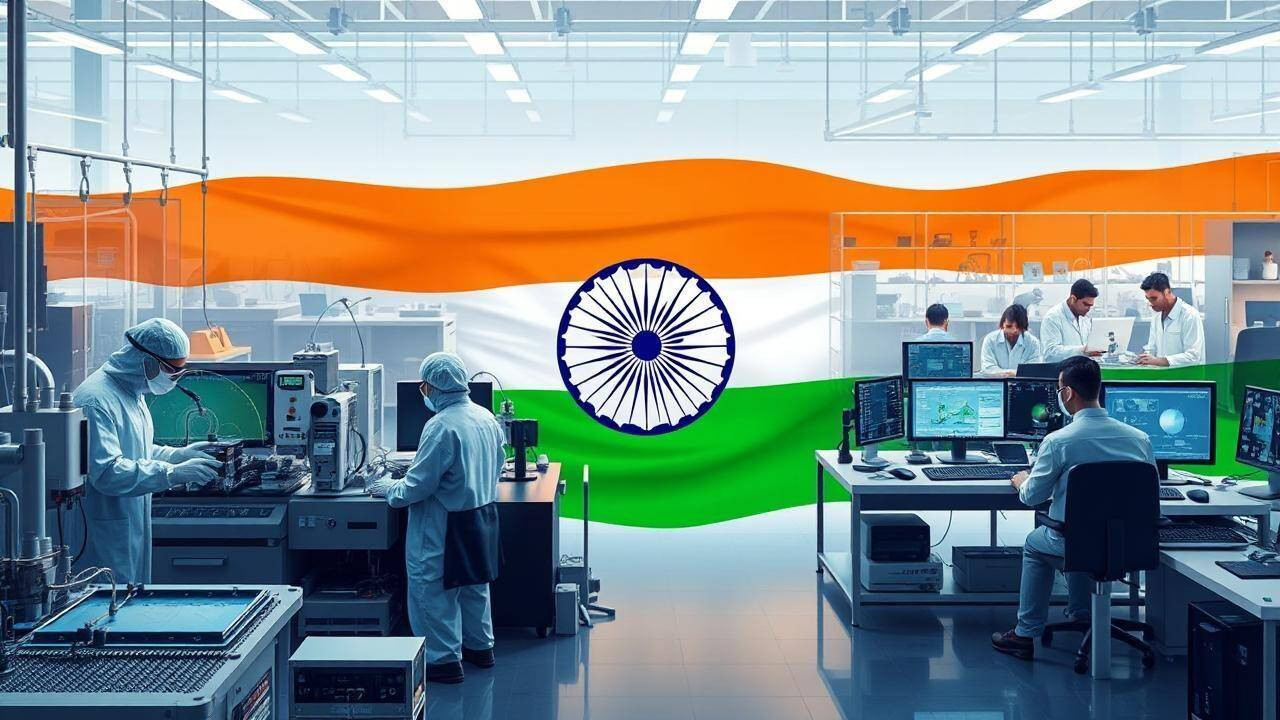Indian chemical companies are making strides in creating a semiconductor manufacturing ecosystem, aligning with India’s tech ambitions. These firms are producing ultra-high-purity chemicals vital for wafer fabrication, reducing reliance on imports from Japan and the US. Tata Chemicals is boosting its high-purity chemical production, while Deepak Nitrite manufactures essential etching and cleaning chemicals.
India’s Semiconductor Dreams: Not Just Silicon, But the Secret Sauce Too
For years, the conversation surrounding India’s ambition to become a semiconductor powerhouse has centered on the big-ticket items: fabrication plants (fabs), design expertise, and the necessary investment to lure global giants. While those elements remain critical, a less glamorous – yet equally vital – piece of the puzzle is quietly falling into place: the ultra-pure chemical supply chain.
Think of it like baking a cake. Everyone focuses on the oven, the flour, and the sugar. But what about the baking powder, the vanilla extract, and the pinch of salt? These seemingly minor ingredients are essential for the cake to rise properly and taste delicious. Similarly, ultra-pure chemicals are indispensable for semiconductor manufacturing.
These aren’t your run-of-the-mill industrial chemicals. We’re talking about substances so pure that even trace amounts of impurities – measured in parts per billion – can ruin an entire batch of microchips. Imagine the frustration of investing billions in a fab only to have production crippled by subpar chemicals.

The Rising Tide of Ultra-Pure Chemicals
Several Indian chemical companies are stepping up to the plate, recognizing the immense opportunity presented by the burgeoning domestic semiconductor industry. These companies are investing heavily in research, development, and production facilities to manufacture these specialized chemicals locally. This is a crucial development, as relying solely on imports for such critical materials would leave India vulnerable to supply chain disruptions and geopolitical uncertainties.
Previously, the lack of a robust domestic supply of ultra-pure chemicals acted as a significant barrier to attracting semiconductor manufacturers to India. Companies were hesitant to invest in fabs without assurances that they could reliably source the necessary materials. Now, with Indian companies actively building capacity, that hurdle is beginning to shrink.
Why Local Production Matters
The benefits of a domestic ultra-pure chemical industry extend far beyond simply ensuring a steady supply. It fosters innovation, creates high-skilled jobs, and reduces reliance on foreign suppliers, enhancing India’s strategic autonomy in the technology sector. Furthermore, local production can potentially lower costs for semiconductor manufacturers, making India a more attractive destination for investment.
This isn’t just about playing catch-up; it’s about building a sustainable and resilient semiconductor ecosystem that can compete on the global stage. It’s about having control over every aspect of the manufacturing process, from the initial design to the final packaging.
Challenges Ahead
While the progress is encouraging, challenges remain. Meeting the stringent quality standards demanded by the semiconductor industry requires significant technological expertise and meticulous quality control measures. Indian companies need to continue investing in R&D and collaborating with international partners to acquire the necessary know-how.
Furthermore, fostering collaboration between chemical manufacturers, semiconductor designers, and fabrication plants is essential. A seamless flow of information and feedback is crucial to optimize chemical formulations and ensure they meet the specific needs of different chip manufacturing processes. Investment in the supporting infrastructure is also necessary to create India’s semiconductor ecosystem.
Building a Complete Ecosystem
The growth of the ultra-pure chemical industry is a powerful indicator that India’s semiconductor ambitions are taking shape beyond the headlines. It underscores the importance of a holistic approach, focusing not just on the glamorous aspects of chip manufacturing but also on the foundational elements that underpin the entire industry.
As these chemical companies continue to ramp up production and refine their processes, India is steadily solidifying its position as a serious contender in the global semiconductor race. For more on related news, check out this article on [recent government incentives for electronics manufacturing](internal-link).
The Future is Bright (and Ultra-Pure)
The advancements in India’s ultra-pure chemical manufacturing sector signify a crucial leap towards achieving self-reliance and establishing a comprehensive semiconductor ecosystem. By nurturing this critical link in the supply chain, India is paving the way for a future where it’s not just assembling electronics, but designing and manufacturing the chips that power the world. This strategic move promises economic growth, technological advancement, and a stronger foothold in the global technology landscape.







